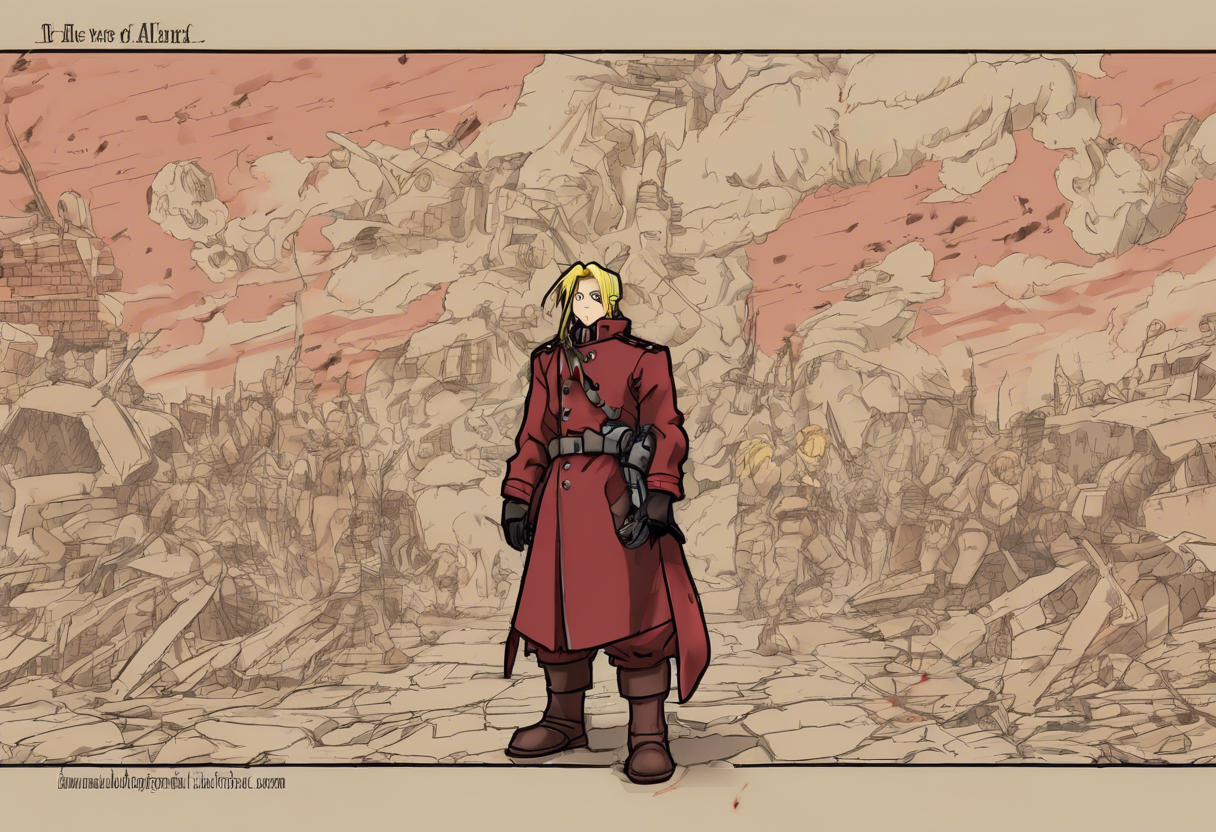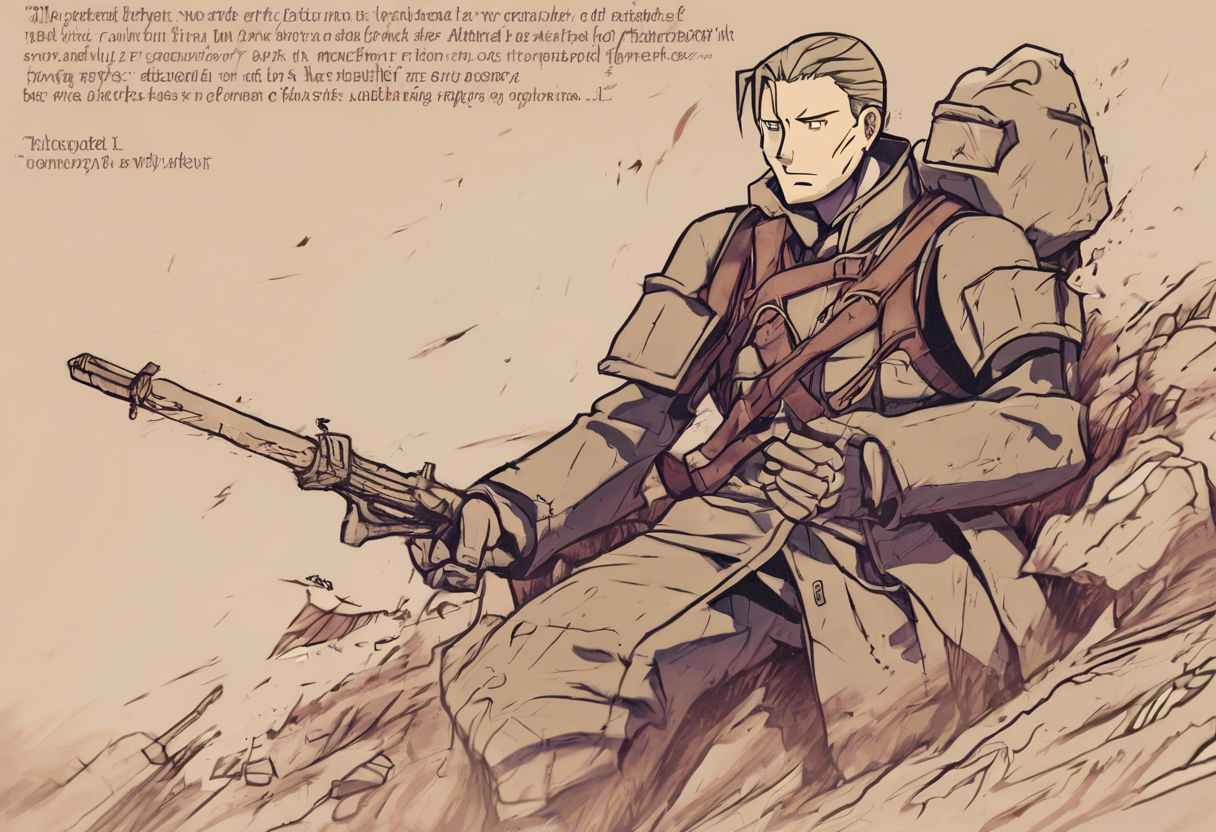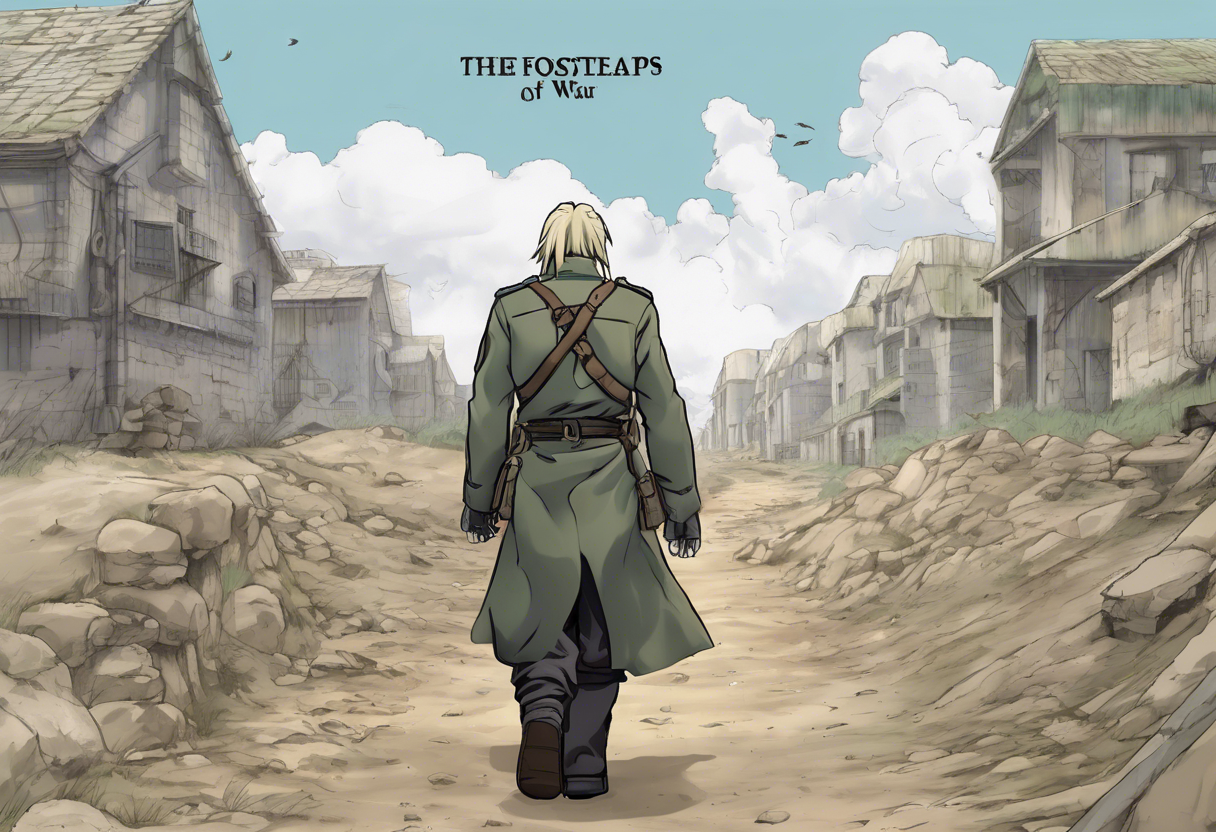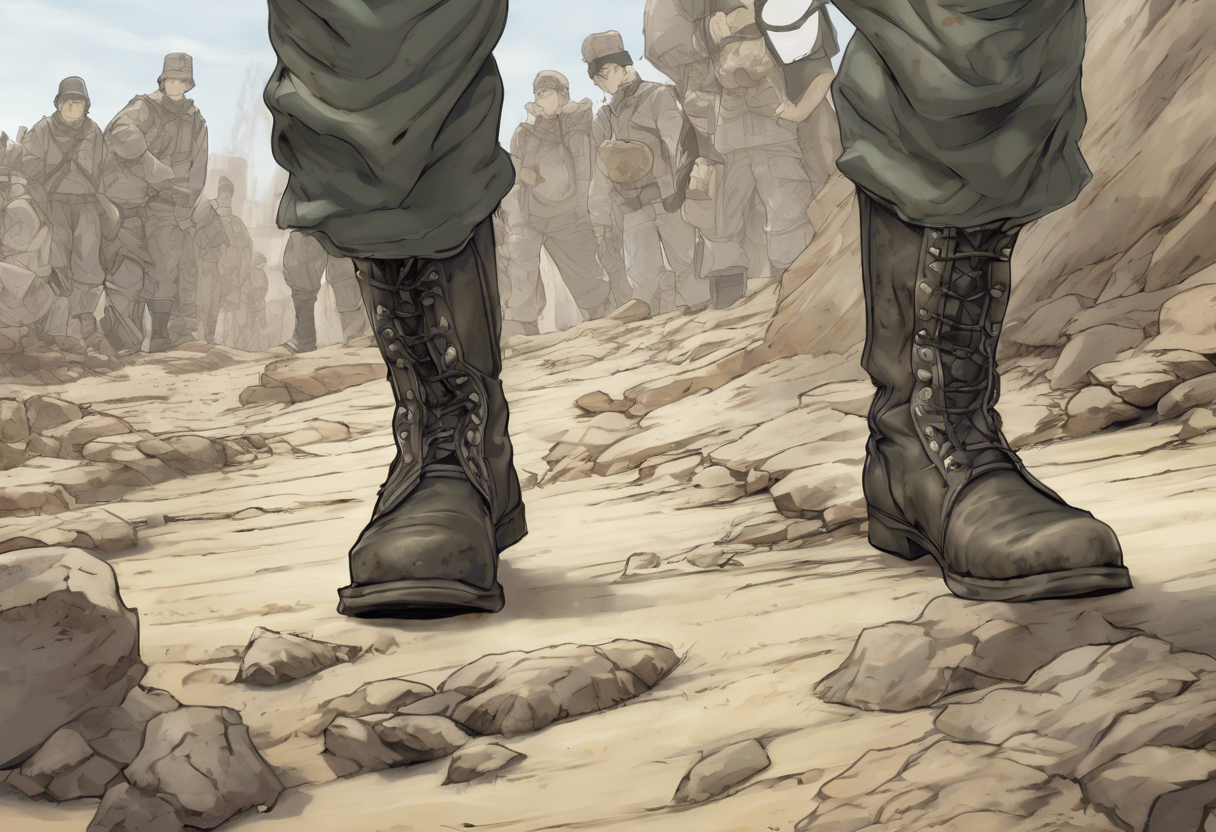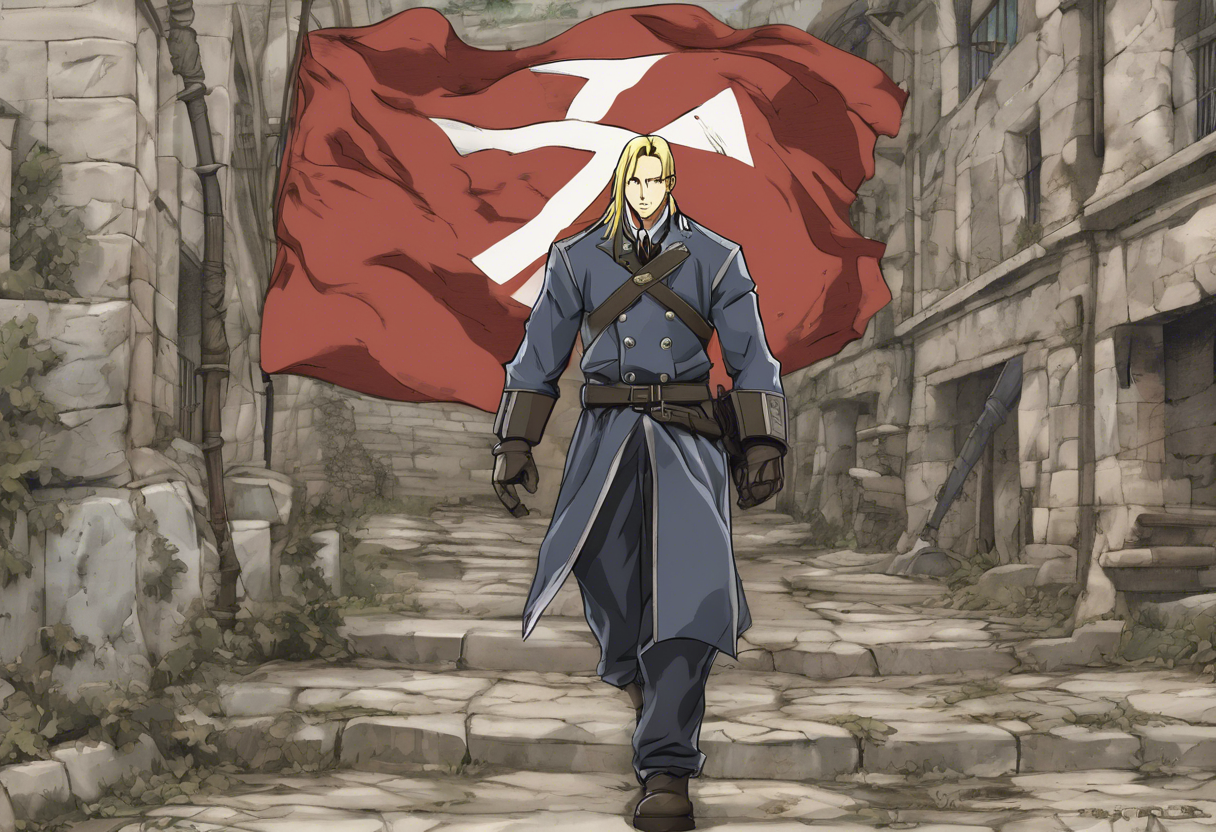Contents
Introduction
"The Footsteps of a Comrade-in-Arms" is not a standalone anime, but rather the 16th episode of the highly acclaimed anime series Fullmetal Alchemist: Brotherhood. This episode is part of a larger narrative that faithfully adapts the original manga series by Hiromu Arakawa.
Fullmetal Alchemist: Brotherhood was produced by Bones, with Yasuhiro Irie as the director, Hiroshi Ōnogi as the writer, and Akira Senju as the composer. The series was conceived to create a faithful adaptation of the manga, unlike the 2003 anime series which deviated from the original storyline midway through its run [2][4].
Production for Fullmetal Alchemist: Brotherhood began in 2008, and the series was broadcast for 64 episodes on MBS-TBS from April 2009 to July 2010. The episode "Footsteps of a Comrade-in-Arms" was part of this broadcast, airing in 2009.
What sets Fullmetal Alchemist: Brotherhood apart, including this episode, is its meticulous adherence to the original manga storyline, introducing characters and plot details that were absent in the 2003 series. This faithfulness, combined with its compelling narrative, action scenes, and moral messages, has made it one of the best anime series of all time [2][4].
Plot Summary
The 16th episode, "Footsteps of a Comrade-in-Arms," revolves around the aftermath of the death of Maes Hughes, a significant character and friend to the Elric brothers. The episode delves into the emotional impact of his death on the characters, particularly Roy Mustang and his team.
The plot centers on the investigation into Hughes’s death, which leads to revelations about the Homunculi and the deeper conspiracy within the State Military. The episode also explores the themes of grief, loyalty, and the moral dilemmas faced by the characters in the face of tragedy.
Edward and Alphonse Elric, the main protagonists, continue their journey to restore their bodies, but this episode focuses more on the supporting characters and their reactions to the loss of a comrade. The setting remains within the fictional world inspired by the European Industrial Revolution, where alchemy is a widely practiced science [4].
Themes and Symbolism
"Footsteps of a Comrade-in-Arms" is rich in themes that are central to the broader narrative of Fullmetal Alchemist: Brotherhood. One of the primary themes is the cost of war and the impact of loss on individuals and society. The death of Hughes serves as a poignant reminder of the sacrifices made in the pursuit of truth and justice.
The episode also explores the theme of camaraderie and the bonds between comrades. The relationships between Roy Mustang, Riza Hawkeye, and Maes Hughes are highlighted, showing how these bonds are tested by grief and adversity.
Symbolically, the episode uses the character of Hughes to represent the innocence and humanity that can be lost in the midst of conflict. His death serves as a catalyst for the characters to reflect on their own values and the true cost of their actions [2][4].
Cultural Impact
Fullmetal Alchemist: Brotherhood, including episodes like "Footsteps of a Comrade-in-Arms," has had a significant cultural impact. The series has been widely acclaimed and is considered one of the best anime series of all time, influencing numerous other anime and manga works.
The series premiered in Japan on MBS-TBS and was later broadcast in North America on Adult Swim, introducing the story to a global audience. The English dub, which included much of the cast from the 2003 series, further expanded its reach [2][4].
The cultural significance of Fullmetal Alchemist: Brotherhood extends beyond its initial release. It has inspired various adaptations, including live-action films and video games, and has been referenced in other media due to its compelling characters and storyline.
Critical Reception
"Footsteps of a Comrade-in-Arms" and the broader series of Fullmetal Alchemist: Brotherhood have received critical acclaim. Reviewers have praised the series for its faithfulness to the manga, its well-developed characters, and its balanced blend of action and emotional depth.
The episode itself has been lauded for its emotional impact, particularly in how it handles the death of a significant character and the subsequent reactions of the other characters. The series has been noted for its ability to balance light-hearted moments with intense, dramatic scenes, making it appealing to a wide range of audiences [2][4].
There have been no major controversies surrounding this episode, but rather consistent praise for its storytelling and character development.
Legacy
Fullmetal Alchemist: Brotherhood, including episodes like "Footsteps of a Comrade-in-Arms," continues to have an enduring legacy in the world of anime and beyond. The series remains highly influential, with many considering it a benchmark for anime adaptations.
The series’ impact on popular culture is evident in its continued popularity and the numerous adaptations and references it has inspired. The live-action films, video games, and other media based on the series are a testament to its lasting appeal.
For filmmakers, artists, and audiences, Fullmetal Alchemist: Brotherhood serves as an example of how to craft a compelling narrative that balances action, emotion, and moral depth. Its influence can be seen in many subsequent anime series and manga, solidifying its place in cinematic history [2][4].
References
- https://www.crunchyroll.com/series/GRGGPG93R/fullmetal-alchemist-brotherhood
- https://en.wikipedia.org/wiki/Fullmetal_Alchemist:_Brotherhood
- https://www.crunchyroll.com/watch/GY5VEVNQY/footsteps-of-a-comrade-in-arms
- https://en.wikipedia.org/wiki/Fullmetal_Alchemist
- https://www.youtube.com/watch?v=HkN8yrc7lZY

